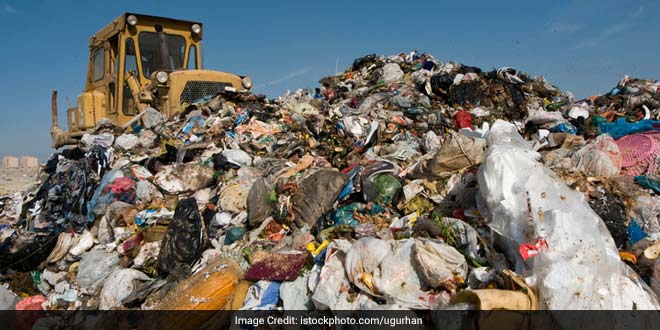Kohima: The Nagaland waste management policy targets efficient management and proper disposal of waste and educate the people to segregate bio-degradable, recyclable and inert waste at source, an official said. The Nagaland Integrated Waste Management Policy 2019 was enacted by the state government in February this year covers all urban and rural areas of the state, said deputy director in Urban Development department and Nodal Officer of Swachh Bharat Mission, Tarachu Fithu on Monday.
He said the intention of the policy is to enable the community to reduce waste, reuse and recycle. As per the policy, waste management scenario in the state is still by and large rudimentary in the absence of proper policy or any regulatory mechanism.
The urban areas comprising of 19 urban local bodies of the state, only Kohima has the scientific solid waste treatment plant located with 50 tonne per day (TDP) capacity. The rest of the urban local bodies have all landfill sites but they dump without any proper treatment.
Also Read: Plastic Pollution: Indian Student Invents Robots To Clean Oceans And Help Farmers
Waste production in the urban areas is about 342 TDP, the policy pointed. There are no collection systems at present in rural areas. But the inherent practice of source segregation of wet waste for animal feed considerably reduces the problem of waste management, it said.
The policy stated that some of the major issues faced in waste management, especially in the urban areas are the availability of land, manpower, machinery, and resources at the disposal of the authorities. The policy stated that the Urban Development department shall ensure that all urban local bodies prepare action plan individually as to how they will manage their wastes.
The Rural Development department shall ensure that all village councils prepared an action plan individually as to how they will manage their wastes. The Deputy Commissioner of all districts will ensure that solid waste management projects are included in the development activities of towns and villages.
Also Read: 50 Million Tonnes Of E-Waste Discarded Each Year: United Nations Report
NDTV – Dettol Banega Swachh India campaign lends support to the Government of India’s Swachh Bharat Mission (SBM). Helmed by Campaign Ambassador Amitabh Bachchan, the campaign aims to spread awareness about hygiene and sanitation, the importance of building toilets and making India open defecation free (ODF) by October 2019, a target set by Prime Minister Narendra Modi, when he launched Swachh Bharat Abhiyan in 2014. Over the years, the campaign has widened its scope to cover issues like air pollution, waste management, plastic ban, manual scavenging and menstrual hygiene. The campaign has also focused extensively on marine pollution, clean Ganga Project and rejuvenation of Yamuna, two of India’s major river bodies.






























